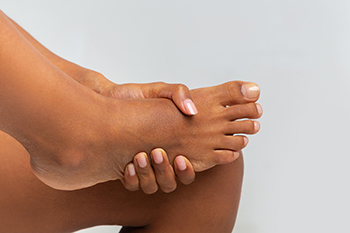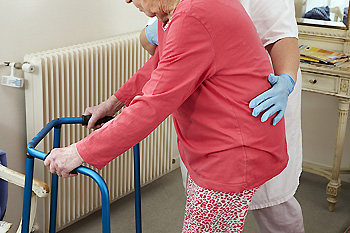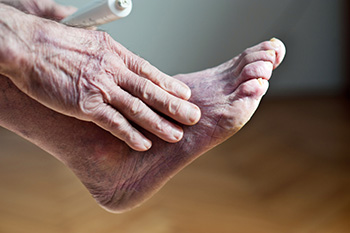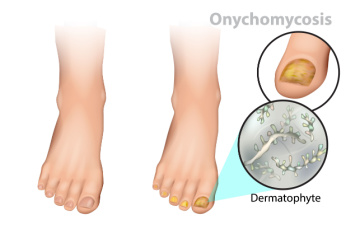
Throughout your life, your feet will carry you thousands of miles, enduring wear and tear that can lead to various common foot problems. Aging feet are prone to widening and arch collapse, which can increase the likelihood of issues like plantar fasciitis, flat feet, and osteoarthritis. Regular self-examinations can help you identify early signs of trouble, such as calluses, blisters, and discolored toenails, which may require changes in footwear or custom orthotics. Plantar fasciitis, marked by heel pain, often benefits from performing specific exercises, and supportive shoe inserts. Flat feet, where your arches have flattened out, can cause discomfort and swelling, best managed with orthotic inserts and shoes with arch support. Additionally, osteoarthritis in your feet can lead to joint pain and stiffness, manageable through topical pain relievers, anti-inflammatory medications, and sometimes corticosteroid injections. Proactive foot care and seeking timely treatment for foot problems are important ways to maintain your mobility and improve quality of life. If you are experiencing persistent foot pain or discomfort, it is suggested that you schedule an appointment with a podiatrist for specialized foot care.
Everyday foot care is very important to prevent infection and other foot ailments. If you need your feet checked, contact one of our doctors from New England Foot & Ankle . Our doctors can provide the care you need to keep you pain-free and on your feet.
Everyday Foot Care
Often, people take care of their bodies, face and hair more so than they do for their feet. But the feet are a very important aspect of our bodies, and one that we should pay more attention to. Without our feet, we would not be able to perform most daily tasks.
It is best to check your feet regularly to make sure there are no new bruises or cuts that you may not have noticed before. For dry feet, moisturizer can easily be a remedy and can be applied as often as necessary to the affected areas. Wearing shoes that fit well can also help you maintain good foot health, as well as making it easier to walk and do daily activities without the stress or pain of ill-fitting shoes, high heels, or even flip flops. Wearing clean socks with closed shoes is important to ensure that sweat and bacteria do not accumulate within the shoe. Clean socks help to prevent Athlete’s foot, fungi problems, bad odors, and can absorb sweat.
If you have any questions please feel free to contact our offices located in Wakefield, MA, Nashua and Derry, NH . We offer the newest diagnostic and treatment technologies for all your foot and ankle needs.
 Foot pain
Foot pain


